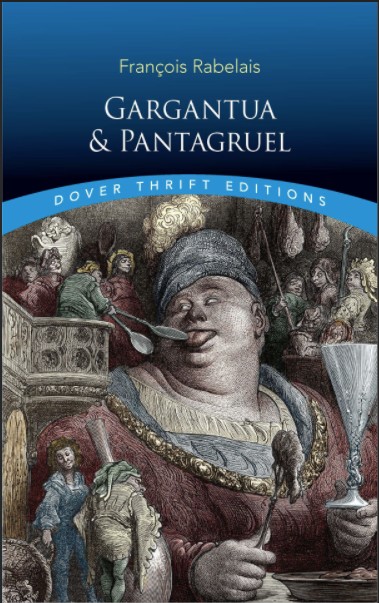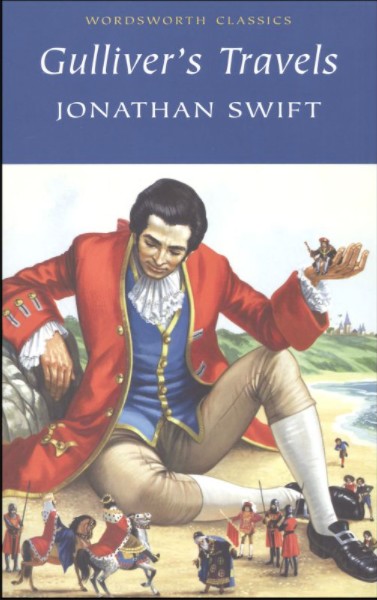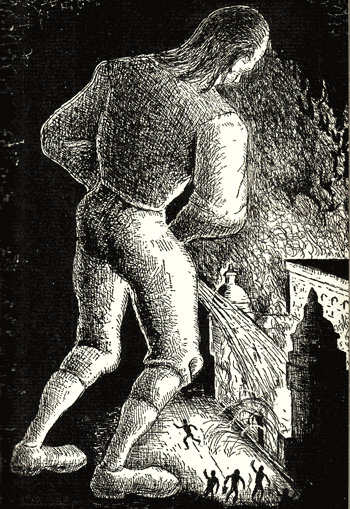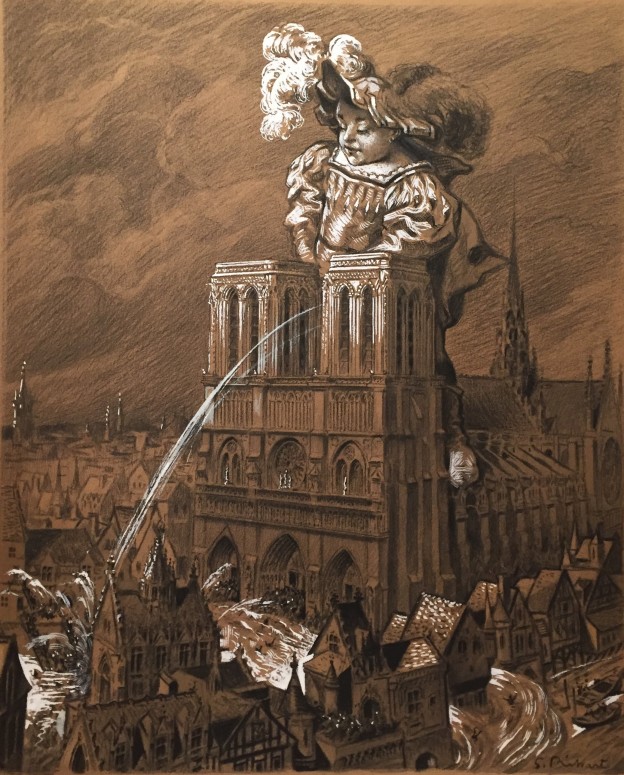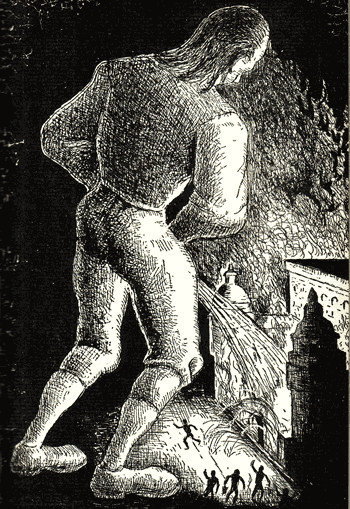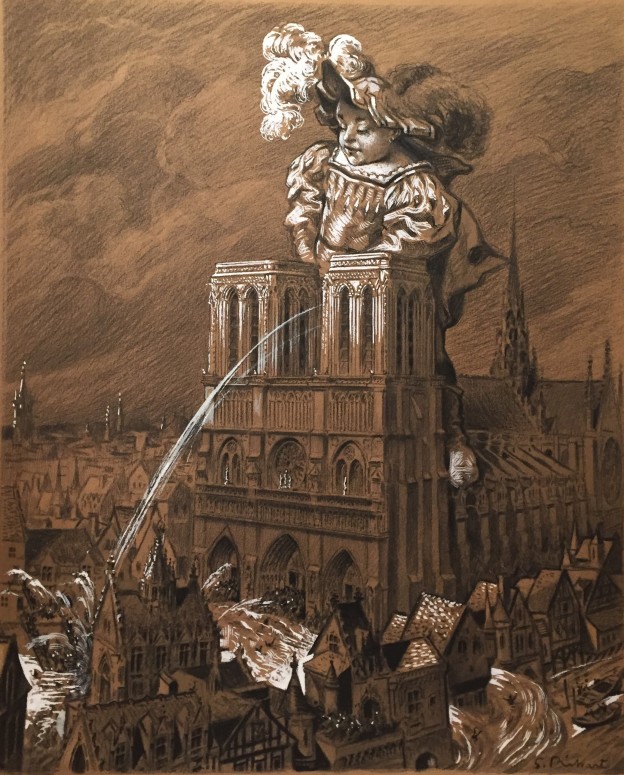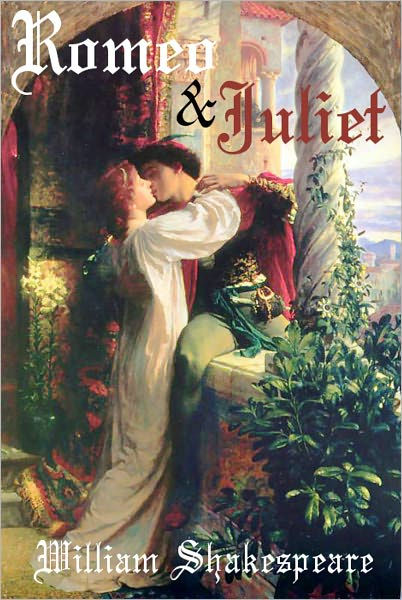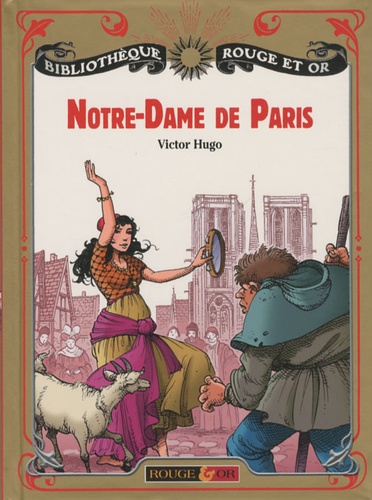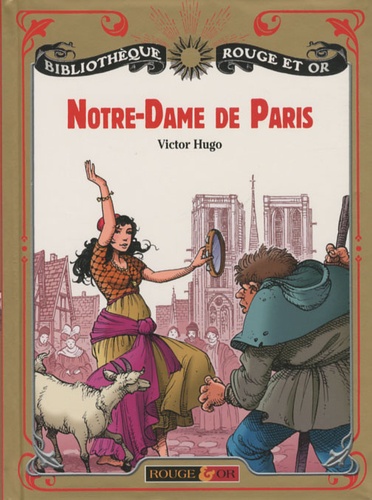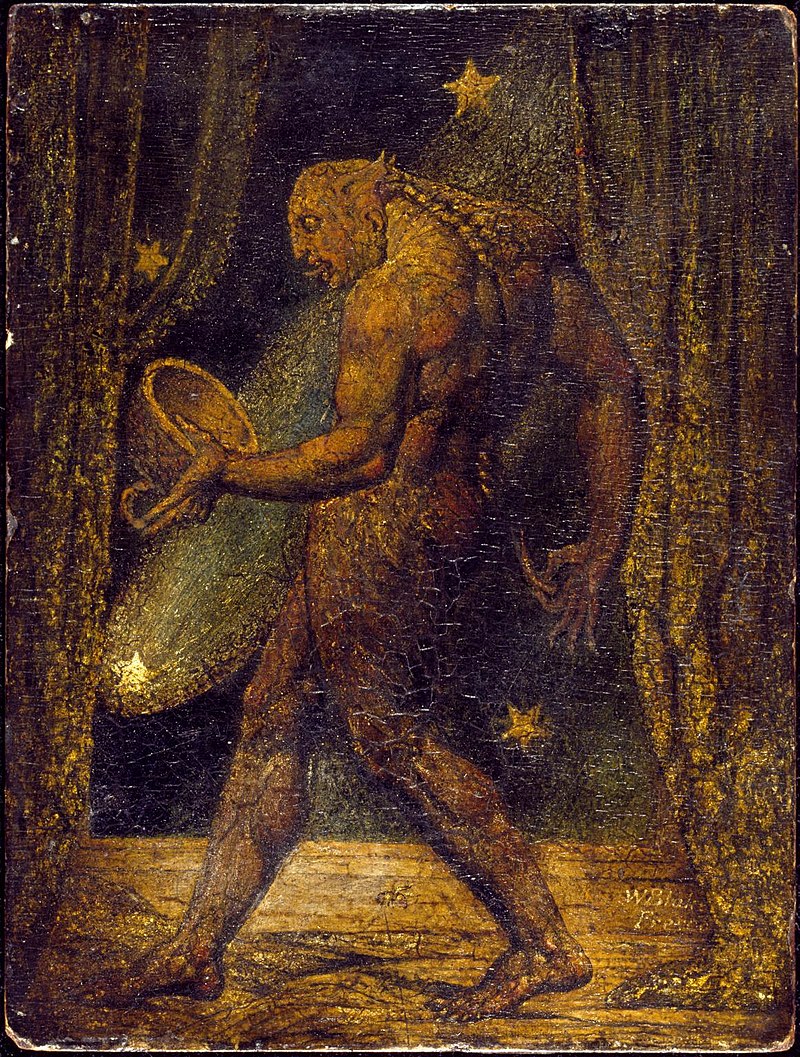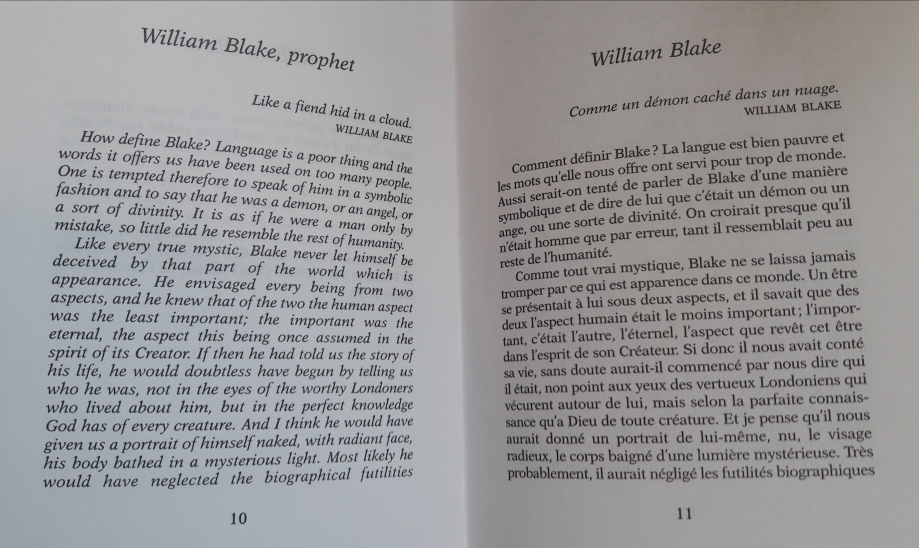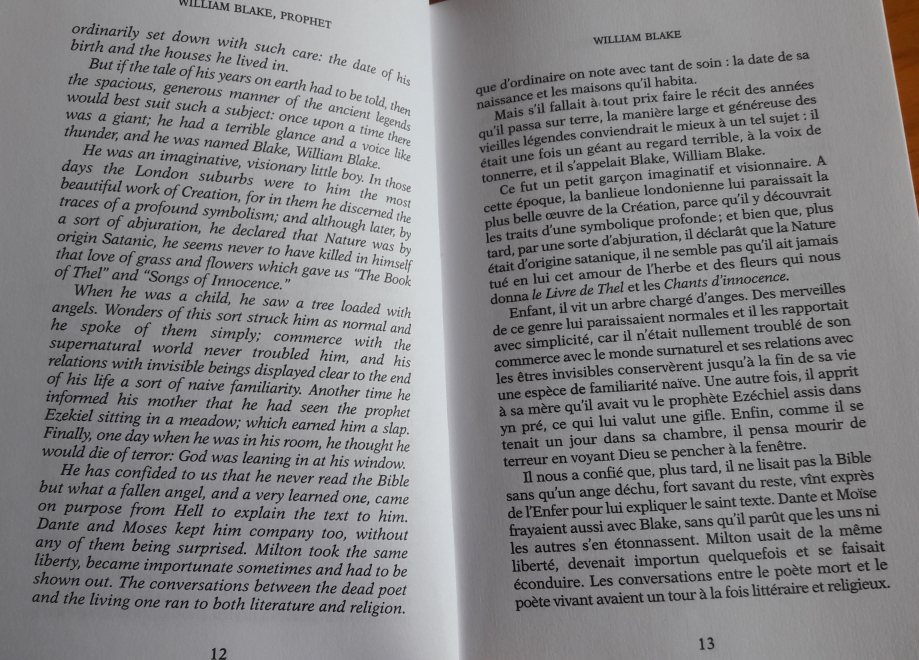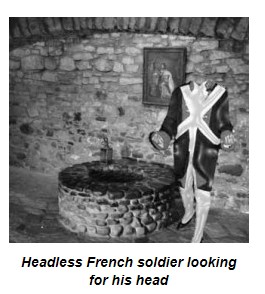Articles bilingues
Gulliver et Gargantua, les géants de la littérature/ Gulliver and Gargantua, the giants of literature
Gulliver et Gargantua, les géants de la littérature
Ils ont beau être l'un anglais et l'autre français, ces deux géants-là ont bien des choses en commun. Gargantua a été imaginé par le français François Rabelais en 1534 et a beaucoup influencé l'anglais/irlandais Jonathan Swift pour la conception de son célèbre géant, Gulliver en 1726. Pour être tout à fait honnête, Gulliver n'est pas un vrai géant ; il n'est géant qu'au pays de Lilliput, alors qu'il est minuscule au pays de Brobdingnag et de taille normale dans ses deux autres voyages.
L'épisode grotesque qui les rapproche probablement le plus est celui où ils vident leur vessie à des fins plus où moins honorables.
Ne voyant que cette solution pour éteindre l'incendie du palais royal, Gulliver urine sur les appartements de l'impératrice Lulliputienne ravagés par les flammes au grand dam de cette dernière qui, horrifiée, promet de se venger :
« L’incendie commençait à croître, et un palais si magnifique aurait été infailliblement réduit en cendres si, par une présence d’esprit peu ordinaire, je ne me fusse tout à coup avisé d’un expédient. Le soir précédent, j’avais bu en grande abondance d’un vin blanc appelé glimigrim, qui vient d’une province de Blefuscu et qui est très diurétique. Je me mis donc à uriner en si grande abondance, et j’appliquai l’eau si à propos et si adroitement aux endroits convenables, qu’en trois minutes le feu fut tout à fait éteint, et que le reste de ce superbe édifice, qui avait coûté des sommes immenses, fut préservé d’un fatal embrasement. » Les Voyages de Gulliver, Jonathan Swift, 1926.
https://forensicpsychologist.blogspot.com/2012/05/macdonald-triad-predictor-of-violence.html
L'exploit de Gargantua est beaucoup moins noble puisque pour se débarrasser des Parisiens lancés à ses trousses, Gargantua urine du haut de la cathédrale Notre-Dame et en noie des milliers :
« Quelques jours après qu'ils se furent rafraîchis, il visita la ville, et fut vu de tout le monde en grande admiration, car le peuple de Paris est tant sot, tant badaud et tant inepte de nature, qu'un bateleur, un porteur de rogatons, un mulet avec ses cymbales, un vielleux au milieu d'un carrefour, assemblera plus de gens que ne ferait un bon prêcheur évangélique.
Et tant molestement le poursuivirent qu'il fut contraint de se reposer sur les tours de l'église Notre Dame. Auquel lieu étant, et voyant tant de gens à l'entour de soi, dit clairement :
" Je crois que ces maroufles veulent que je leurs paye ici ma bienvenue et mon proficiat. C'est raison. Je leur vais donner le vin, mais ce ne sera que par ris. "
Lors, en soupirant, détacha sa belle braguette, et, tirant sa mentule en l'air, les compissa si aigrement qu'il en noya deux cents soixante mille quatre cents dix et huit, sans les femmes et petits enfants. », Gargantua, François Rabelais, 1534.
Georges Rippart (1871-1935) | Galerie la Nouvelle Athènes
Il n'en demeure pas moins que ces deux illustres personnages donnent lieu à de formidables satires qui permettent à leurs auteurs de critiquer, grâce à l'humour, la société de leur époque et de questionner la notion d'humanité, dont le corps est au cœur au même titre que l'esprit.
Gulliver and Gargantua, the giants of literature
One is English and this other is French, but these two giants have a lot in common. Gargantua was fancied by the Frenchman François Rabelais in 1534 and had a major influence on Jonathan Swift in the conception of his famous giant, Gulliver, in 1726. To be completely honest, Gulliver is not a true giant - he is a giant only in the country of Lilliput whereas he is a tiny little man in Brobdingnag country and of normal size in his two other travels.
Those two giants are similar on many points especially if one considers a grotesque episode when they both urinate abundantly to more or less honorable ends.
Finding no other solution to extinguish the fire of the royal palace, Gulliver urinates on the inflamed apartments of the Lilliput Empress - to the horror of the latter who promises to take revenge :
'The case seemed wholly desperate and deplorable; and this magnificent palace would have infallibly been burnt down to the ground, if, by a presence of mind unusual to me, I had not suddenly thought of an expedient. I had, the evening before, drunk plentifully of a most delicious wine called glimigrim, (the Blefuscudians call it flunec, but ours is esteemed the better sort,) which is very diuretic. By the luckiest chance in the world, I had not discharged myself of any part of it. The heat I had contracted by coming very near the flames, and by labouring to quench them, made the wine begin to operate by urine; which I voided in such a quantity, and applied so well to the proper places, that in three minutes the fire was wholly extinguished, and the rest of that noble pile, which had cost so many ages in erecting, preserved from destruction.' Gulliver's Travels, Jonathan Swift, 1726.
https://forensicpsychologist.blogspot.com/2012/05/macdonald-triad-predictor-of-violence.html
Gargantua's deed is much less noble since in order to get rid of a bunch of Parisians running after him, he climbs Notre-Dame and urinates on the crowd, drowning thousands of them :
'Some few days after that they had refreshed themselves, he went to see the city, and was beheld of everybody there with great admiration; for the people of Paris are so sottish, so badot, so foolish and fond by nature, that a juggler, a carrier of indulgences, a sumpter-horse, or mule with cymbals or tinkling bells, a blind fiddler in the middle of a cross lane, shall draw a greater confluence of people together than an evangelical preacher. And they pressed so hard upon him that he was constrained to rest himself upon the towers of Our Lady's Church. At which place, seeing so many about him, he said with a loud voice, I believe that these buzzards will have me to pay them here my welcome hither, and my Proficiat. It is but good reason. I will now give them their wine, but it shall be only in sport. Then smiling, he untied his fair braguette, and drawing out his mentul into the open air, he so bitterly all-tobepissed them, that he drowned two hundred and sixty thousand, four hundred and eighteen, besides the women and little children.' Gargantua, François Rabelais, 1534.
Georges Rippart (1871-1935) | Galerie la Nouvelle Athènes
It remains that these two illustrious characters gave birth to amazing satires which allowed their authors to criticize, by way of humour, the societies of their times and to challenge the notion of humanity, about which the body is central no less than the soul.
Lovers in literature
Literature is ripe with beautiful love stories. Love is one of the main ingredients of any good novel simply because love is the backbone of our lives. In order to celebrate all lovers as Saint-Valentine's day is approaching, I would like to shine a light on some of the most famous lovers in literature.
Born out of the imagination and the pen of one of the most well-known playwright of all time (William Shakespeare is obviously the one I'm evoking), the couple formed by Romeo and Juliet is undoubtedly the most tragic one. Their love is so strong that they preferred death to separation.
Paul and Virginia's fate (Paul and Virginia, Jacques-Henri Bernardin de Saint-Pierre) is no more enviable. Their pure and juvenile love will not resist the tempest of life and will sink in the abyss off the coast of the Isle of France (now Mauritius).
As for Rhett Butler and Scarlet O'Hara, the terrible lovers of Gone with the Wind by Margaret Mitchell, their destiny is more flexible since the end of the story is given as a reader's choice. Scarlet has severely tested Rhett's love but she has matured and eventually understood that he was his real and only love ; as I can't stand impossible love stories, I prefer a happy ending. After all 'A woman's will is God's will' :
With the spirit of her people who would not know defeat, even when it stared them in the face, she raised her chin. She could get Rhett back. She knew she could. There had never been a man she couldn't get, once she set her mind upon him. "I'll think of it all tomorrow, at Tara. I can stand it then. Tomorrow, I'll think of some way to get him back. After all, tomorrow is another day." (Last Lines of the novel)
Esmeralda (Notre-Dame de Paris, Victor Hugo) swept many men off their feet ! But the most touching and loveable is probably Quasimodo who will have himself die by his beloved's body.
So many tragic love stories ! Let's get better vibes back in the Antiquity with Ulysses and Penelope's unflinching love. Albeit separation was the hallmark of their love story, it will but reinforce the bond that links them. Despite time and obstacles, Ulysses and Penelope will be reunited forever...at least in the collective memory.
If in literature, all love stories are not happy, they are, nonetheless, beautiful enough to make one cry.
Les amoureux de la littérature
La littérature foisonne de magnifiques histoires d'amour. L'amour est d'ailleurs un des ingrédients de base de tout bon roman qui se respecte, tout simplement car il est le fil rouge de notre existence. Afin d'honorer les amoureux à l'approche de la saint Valentin, j'ai souhaité mettre à l'honneur quelques uns des couples les plus célèbres de la littérature.
Né de l'imagination et de la plume d'un des plus grands dramaturges de tous les temps (Je veux bien sûr parler de William Shakespeare) le couple que forment Roméo et Juliette est celui qui a sans doute connu le destin le plus tragique. Leur amour est si fort qu'ils préfèrent la mort à la séparation.
Le sort de Paul et Virginie (Paul et Virginie, Jacques-Henri Bernardin de Saint-Pierre) n'est pas plus enviable. Leur amour pur et juvénile ne résistera pas à la tempête de la vie et s'abîmera au large de l'île de France (qui est devenue l'île Maurice).
Quant à Rhett Butler et Scarlet O'Hara, les amants terribles d'Autant en Emporte le Vent de Margaret Mitchell, leur destin est moins figé ; il est laissé aux bons soins du lecteur. Scarlet a mis à rude épreuve l'amour de Rhett mais elle a mûri et a compris que c'était lui son seul et grand amour ; ne supportant pas les amours impossibles, j'opte pour un dénouement heureux ; après tout 'Ce que femme veut, Dieu le veut' :
Avec l’énergie de ceux de sa race, qui ne s’avouent jamais vaincus, même lorsque la défaite les regarde en face, Scarlett releva le menton. Elle ramènerait Rhett à elle. Elle savait qu’elle y parviendrait. Nul homme ne lui avait jamais résisté, lorsqu’elle s’était mis en tête de faire sa conquête.
« Je penserai à cela demain, à Tara. Pour le moment, je n’en ai pas le courage. Demain, je chercherai un moyen de ramener Rhett. En somme, à un jour près… » (dernière lignes du roman).
Esmeralda (Notre-Dame de Paris, Victor Hugo) en aura fait tourner des têtes ! Mais la plus attachante et la plus touchante est sans doute celle de Quasimodo qui se laissera mourir auprès du corps de sa bien-aimée.
Que de sorts tragiques pour tous ces amants ! Allons chercher de meilleures ondes dans l'Antiquité avec l'amour à tout épreuve d'Ulysse et Pénélope. Bien que la séparation marque de son sceau l'amour que se portent ces deux-là, elle ne fera que renforcer le lien qui les unit. Malgré les épreuves et le temps, Ulysse et Pénélope, couple antique, seront réunis pour l'éternité...tout du moins dans la mémoire collective.
Si dans la littérature, les histoires d'amour ne sont pas toutes gaies, elles sont en revanche toutes belles à en pleurer.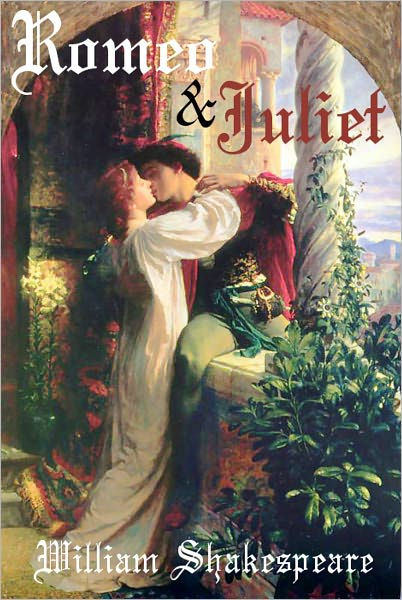
William Blake ou ‘Mad Blake’
The Ghost of the Flea
William Blake (1757-1827) est connu pour ses poèmes Songs of Innocence (1789) et Songs of experience 1794) mais on le connaît moins en tant que graveur et illustrateur, ce qui fut pourtant son premier métier. Il est notamment l’auteur de The Ghost of a Flea (Le Spectre de la Puce, 1819-1820) qu’il dit avoir vu dans une de ses nombreuses visions. Oui, il faut dire que William Blake conversait avec les disparus comme Milton ou encore l’apôtre Paul et avait des visions d’anges et d’archanges. Il était ce qu’on pourrait appeler de nos jours un médium mais à l’époque il était perçu comme un fou ‘Mad Blake’. Le poète William Wordsworth dit de lui : ‘There was no doubt that this poor man was mad, but there is something in the madness of this man which interests me more than the sanity of Lord Byron and Walter Scott’ (On ne peut douter que cet homme fût fou, néanmoins il y a quelque chose dans la folie de cet homme qui m’intéresse davantage que dans la bonne santé mental de Lord Byron ou de Walter Scott).
Voici un extrait de Le langage et son double de Julian Green, qui porte sur William Blake.
William Blake (1757- 1827) is renowned for his poems Songs of Innoncence (1789) and Songs of Experience (1794) but he is less famous as an engraver and an illustrator, which was his first job. He painted The Ghost of a Flea which he claimed he saw in one of his visions. One must point out that William Blake used to talk to the dead, like Milton or the Apostle Paul, and had visions of angels and archangels. He was what we could call today a medium but at the time he was considered a madman ‘Mad Blake’. The poet William Wordsworth said of him : ‘There was no doubt that this poor man was mad, but there is something in the madness of this man which interests me more than the sanity of Lord Byron and Walter Scott’.
Here is an excerpt of Le langage et son double by Julian Green, which deals with William Blake.
A French ghost at the Niagara falls ! Un fantôme français aux chutes du Niagara !
Les Anglosaxons sont incontestablement les maîtres des histoires de fantômes. Il en est une, tout de même, qui concerne un Français : Henri Le Clerc qui perdit sa tête à cause d'une belle indienne (Ah ces Français, fidèles à leur réputation de charmeurs !). Il hante à présent Old Fort Niagara, situé au nord de la ville de Buffalo aux USA, tout près des célèbres chutes du Niagara. L'histoire se passe en 1759 pendant la guerre contre les Anglais. Henri Le Clerc et Jean-Claude de Rochefort se battent en duel pour le cœur de la belle Onita. Le malheureux Henri tombe dans les escaliers et se fracasse le crâne contre un puits. De rage Jean-Claude lui coupe la tête. Pour éviter la pendaison, il veut jeter le corps de Henri dans le lac Ontario. Il n'a le temps que de jeter sa tête. Il se débarassera du corps en le jetant dans le puits sur lequel Henri s'est cogné. Depuis, Henri hante le fort à la recherche de sa tête !
Here is the article of the New York Times concerning this ghost story :
The Headless Ghost of Old Fort Niagara
As is often true of restless spirits, love is central to the story of the headless soldier said to haunt Old Fort Niagara, north of Buffalo. The legend, as described years ago by the folklore expert Louis C. Jones, dates to before the nation’s founding.
It was 1759, in the middle of the French and Indian War, and the British had isolated Fort Niagara, which sits on a piece of land that juts out at the point where Lake Ontario and the Niagara River converge.
Life at the fort had been stressful enough, but then, for two weeks, the British bombarded the French soldiers and their Native American allies stationed there.
“Petty jealousies, long controlled irritations, a thousand annoyances united with the normal fears of battle to make life close to unbearable,” Mr. Jones wrote in a 1944 speech before a joint session of the New York State Historical Association, which he led for a quarter-century, and the New York Folklore Society. (He later included the account .)
Two French officers stationed at the fort had fallen for a Native American woman, according to Mr. Jones, and it was during the siege that they decided to settle the matter once and for all.
Mr. Jones said that the two fighting soldiers, whom he did not name, caught the attention of those around them, their swords making “bright arcs of light” as they fought in a central courtyard. Other accounts of the fact differ, reporting that the battle unfolded in private, between Jean-Claude de Rochefort and Henri Le Clerc.
In the end, de Rochefort won and Le Clerc lost his head. As the story goes, his body fell into a nearby well (or was hidden there intentionally by de Rochefort). Le Clerc’s ghost, it is said, can be seen from time to time emerging from the well in search of its head.
Photos : http://niagarafallsupclose.com/headless-french-soldier-of-old-fort-niagara/

